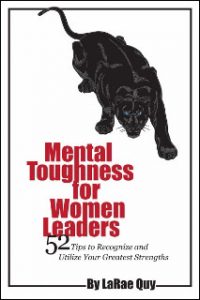I have always been intrigued by empathy because it helps people read the minds of others, something that came in handy as an FBI agent. When I listened to another person’s words and read their body language, I could piece together their thoughts and emotions.
Empathy is not sympathy, nor is it feeling sorry for others. Instead, it is understanding what others are feeling or thinking. It’s often described as the ability to put yourself in another person’s shoes. It’s important to remember you’re experiencing how they feel in their shoes, not how you would feel in them!
There’s a tendency to regard empathy as a soft skill that’s “nice” to have but not essential. Empathic people are often described as warm and fuzzy, bleeding hearts, and compassionate. Nice characteristics but not the tough skills needed for negotiations, board meetings, and economic growth.
Think again.
The U.S. Army, in an excellent summary of leadership traits called the Army Field Manual on Leader Development, places these two topics at the top: 1) Getting to know and understand subordinates, and 2) Building rapport to enable supportive development.
Now that we’ve established that tough guys need to develop empathy to be successful, it’s an essential skill for you because it:
1. Paves The Way Of The Future
As organizations become more global, transparent, and connected, leaders will need to develop new skills to manage a more complex workforce. A recent report by Deloitte indicates that the trend for organizations of the future will be social enterprises. This is a shift because stakeholders in social enterprises expect leaders to deliver not only profits but also a workplace that brings meaning to both employees and customers.
Social enterprises are organizations with a mission to combine revenue growth with the cultivation of relationships and collaboration at every level. In other words, even in the midst of automation and AI, the future of business will have a human focus.
Successful leaders will need to understand the human element in greater detail. They’ll need to develop old-fashioned empathy to satisfy their future stakeholders.
How To Make It Work For You: It’s important to examine your own attitude when dealing with others. Is your primary concern to win, get your own way, or always be right? Put aside your viewpoint, and try to see things from the other person’s point of view. Maybe you aren’t the center of the world after all.
2. Provides Feedback On Your Communication Style

Most of us can throw out loads of information to an audience, but a successful leader must understand how to get through to them. When we increase our communication skills, we learn how to reach employees and customers with a message that is both specific and intentional.
Empathy enables you to know if you’ve reached the people you meant to reach in your organization. Just as important, it lets you know if you conveyed the message you had hoped to convey.
Empathetic leaders can identify the hidden talents of their employees when they use empathy to communicate with them. They can tap into these skills, help develop them and match them to areas in the organization where they would be most beneficial.
“The single biggest problem in communication is the illusion that it has taken place”—George Bernard Shaw
How To Make It Work For You: Listen to people rather than talk. Many times what people say is not as important as what they don’t say. Listen with your entire body: maintain eye contact, nod, and keep your mouth shut. It takes practice to be a good listener because you will need to keep your mind focused on what the other person is saying. Push aside thoughts that want to intrude, even if they’re important. Focus on what the person has said, and then dig through that to get to the deeper truth.
3. Builds Social Skills
A recent study on Workplace Culture by LinkedIn found that 86% of millennials (between the ages of 22 and 37) would consider taking a pay cut to work at a company whose mission and values align with their own. Another study by Bloomberg News found that for Gen Z (between the ages of 15 and 22), it’s less about the product and more about the organization.
These consumers expect the organization’s core values to be reflected by senior leadership. Organizations can no longer get away with simply providing goods or services. They are also expected to deliver their message with honesty and compassion—in other words, empathy.
But here’s the rub: while both Millennials and Gen Z crave being heard and valued, they’ve become so caught up in technology that they’ve dumbed down their social skills. Psychologist Sara Konrath found a trend among young people—they’ve become less empathic than ever! American College students showed a 48% decrease in empathic concern and a 34% drop in their ability to see other people’s perspectives.
The younger workforce may not come equipped with as many social skills as their older counterparts. As a leader, you need to nurture a new generation of leaders. Some people are gifted at sensing how others feel and think while others are not. Studies show that even if employees are not skilled (or even that smart), they can still form smart teams when they’re taught to exhibit social sensitivity to the other members of the group. In other words, empathy.
How To Make It Work For You: While there is some disagreement on whether empathy is a skill that can be learned, below are some tips on how you can improve not only your own empathy but help others in your organization as well:
- Smart and talented people tend to be fast processors of information. Encourage your team to slow down and take a moment to be empathic. For example, if a colleague makes a dumb suggestion, have your team member follow up with an empathic comment like, “I can see why you think that, but it doesn’t follow our guidelines.” The point is to encourage people to make a 60-second investment of time with the other person to affirm they heard their suggestion, gave it some thought, and chose a different direction. Even those who make dumb suggestions don’t need to be humiliated.
- Read more novels. A recent study suggests that people who read more fiction score much higher on empathy tests.
- Mix it up. Smart teams are effective because trust has been created within the group, but another study shows that when we interact with those outside our group or team, it increases our brain’s empathic response. Teamwork is essential, but it can also be insular, so don’t forget to mix it up.
4. Makes Conflicts Easier To Handle

Empathy understands and identifies with the emotions of another, even if it doesn’t agree.
When you perceive what the other person wants and needs, it gives you a step up on how to reach a win-win solution. If you don’t try to place yourself in their situation, it’s easy to misread their signals. Instead, you react and think as you would, not them.
Empathy is not the same as love or affection. It doesn’t require us to even like the people with whom we can show empathy. When an empathic leader can sense what another person is thinking, it can be very helpful in everything from negotiating a salary to planning a social event for the family.
“When you show deep empathy toward others, their defensive energy goes down, and positive energy replaces it. That’s when you can get more creative in solving problems”—Stephen Covey
How To Make It Work For You: Look at empathy as a data-gathering tool that helps you understand your environment. Whether it’s business or life, it will help you scan large amounts of information about people and sort out what is essential from what is noise. Empathy is crucial in negotiations and conflicts. It allows you to understand the other person’s needs and what risks they’re willing, or not willing, to take before they’ll move on.
© 2020 LaRae Quy. All rights reserved.
You can follow me on Twitter, Facebook, Instagram, AND LinkedIn
Are you mentally tough? Here is my FREE Mental Toughness Assessment
Check out my new online training program at www.SecretsOfAStrongMind.com
Get my new book, “Secrets of a Strong Mind (second edition): How To Build Inner Strength To Overcome Life’s Obstacles”

Author of “Mental Toughness for Women Leaders: 52 Tips To Recognize and Utilize Your Greatest Strengths”



We think that either you’re empathetic or you’re not. I appreciate that you’ve suggested that leaders need to help their teams slow down and take a moment to be empathetic. You showed how easy it is and fast to foster empathy when we acknowledge that it matters both to individuals and to the organization. Empathy isn’t about being touchy-feely but being someone who others want to work with and for and creating a great place to work. I’m with you, it’s essential.
Alli
Great post LaRae! Empathy is a real strength for leaders to show if they want to build strong relationships and teams. All your points are fantastic and I especially relate to the one about being aware of our own biases and attitudes when working with others. I am working with a leader now who had a strong opinion about how to handle a financial situation. He kept trying to convince me to see it from his vantage point. I finally got it and was able to make a change.
You make a great case LaRae for empathy as a core leadership skill. Technology has replaced so much of the human to human connection where that skill is formed. This has clearly hampered the development of good communication skills not only that require empathy but even basic writing skills. Most alarming though are the stats about the significant drop in empathy among college students. I am left thinking about the implications of that on many levels.
I heartily agree with the traits and benefits of true empathy as LaRae describes it — and her approach spurs us to want and learn how to strengthen that trait